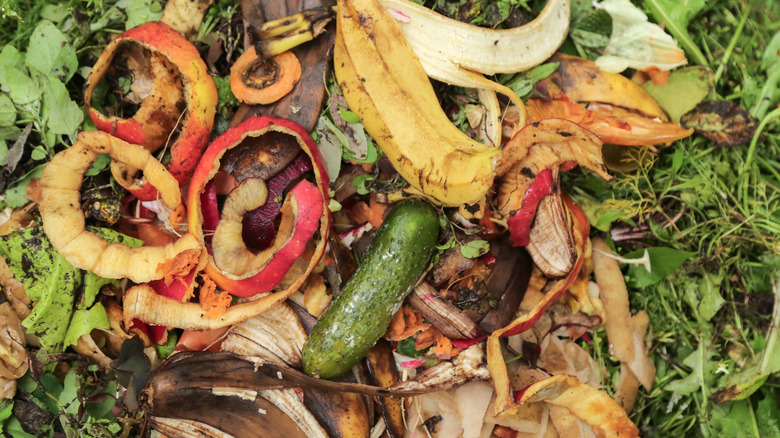What Sam's Club Does With Unsold Groceries
Food waste is a major problem in the United States: Up to 40% of our food supply goes to waste, according to the United States Department of Agriculture. There are small steps individuals can take to combat food waste, but large-scale farms, companies responsible for food storage and transportation, and retailers have a much larger role than consumers wasting groceries.
Planting, growing, and harvesting food has an ecological cost — and that's before the food is shipped to stores. Then, stores tend to overbuy produce to make sure they have plenty of good-looking fresh fruits and veggies available for customers, but when they don't sell, the environmental consequences are disastrous. Stores discard produce with unattractive lumps and bumps, perishables nearing their best-by date, and anything that isn't bought before it starts to fade (though it may still be safe to eat). The food ends up in landfills, where it produces staggering amounts of methane gas as it rots.
To a certain extent, stores do make an effort to cut down on food waste. After all, it affects their bottom line. But ultimately, markups on produce are high enough that waste isn't much of a concern. Sam's Club and its parent company, Walmart, are taking steps toward better waste management, though. Walmart Inc. has long partnered with food banks to donate edible food. The combined donations from both stores make them the biggest contributors in the United States to Feeding America, an organization with a network of food banks and meal programs. Walmart Inc. also donates money to the organization.
Walmart partners with Denali to recycle food that can't be donated
Not every bit of unsold produce can go to food banks. In 2023, Walmart partnered with organic recycling company Denali to save leftover food from landfills. Denali's services help recycle inedible food into compost, fertilizer, and animal feed; the company turns some waste into clean energy, too.
Typically, if stores want to recycle food waste, associates have to remove food from its packaging by hand. The process is tricky and time-consuming, so stores don't have much incentive to recycle packaged food. Among the inventions that could slash global food waste, Denali has pioneered machines that separate food from its packaging. According to the company, the process can separate 97% of non-food material (like plastic and cardboard) from organic matter. Over 1,400 locations of Sam's Club and Walmart use the service. Admittedly, that's only a fraction of the chain's roughly 4,600 Walmart stores and 600 Sam's Club locations in the United States — but it's a start.
Walmart is the first major retailer to utilize the technology, and Denali's services have had a big impact. Now, Walmart claims that it diverts 83% of its waste from landfills, though the Institute of Sustainability Studies puts the number at 78%. As of February 2025, the retailer claimed that it was on track to divert 90% of North American waste by the end of the year. So what happens to all that organic matter that Denali recycles? Well, some of it heads back to stores. Now, you can buy compost made from that very same food waste at some Walmart locations.

